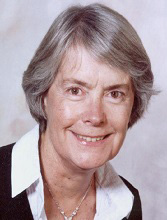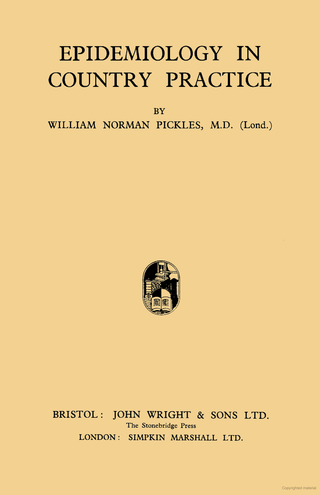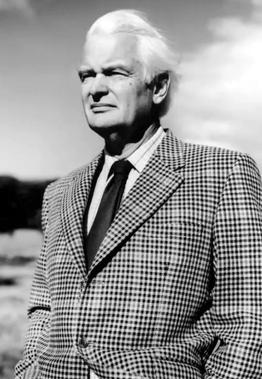Related Research Articles

A medical guideline is a document with the aim of guiding decisions and criteria regarding diagnosis, management, and treatment in specific areas of healthcare. Such documents have been in use for thousands of years during the entire history of medicine. However, in contrast to previous approaches, which were often based on tradition or authority, modern medical guidelines are based on an examination of current evidence within the paradigm of evidence-based medicine. They usually include summarized consensus statements on best practice in healthcare. A healthcare provider is obliged to know the medical guidelines of their profession, and has to decide whether to follow the recommendations of a guideline for an individual treatment.

Alan Julian Macbeth Tudor-Hart, commonly known as Julian Tudor Hart, was a general practitioner (GP) who worked in Wales for 30 years, known for theorising the inverse care law. He produced medical research and wrote many books and medical articles.

The Royal College of General Practitioners (RCGP) is the professional body for general (medical) practitioners in the United Kingdom. The RCGP represents and supports GPs on key issues including licensing, education, training, research and clinical standards. It is the largest of the medical royal colleges, with over 54,000 members. The RCGP was founded in 1952 in London, England and is a registered charity. Its motto is Cum Scientia Caritas – "Compassion [empowered] with Knowledge."
In the United Kingdom, Ireland, and parts of the Commonwealth, consultant is the title of a senior hospital-based physician or surgeon who has completed all of their specialist training and been placed on the specialist register in their chosen speciality. Their role is entirely distinct from that of a general practitioner.
The Quality and Outcomes Framework (QOF) is a system for the performance management and payment of general practitioners (GPs) in the National Health Service (NHS) in England, Wales, Scotland and Northern Ireland. It was introduced as part of a new general medical services (GMS) contract in April 2004, replacing various other fee arrangements.
GPASS, General Practice Administration System for Scotland, is a clinical record and practice administration software package that was previously in widespread by Scottish general medical practitioners. It launched in 1984 and became dominant in the market while still being in public ownership, but a loss of confidence in it led to other systems being adopted and it had been largely been replaced by 2012.

Dame Clare Mary Louise Francis Gerada, Lady Wessely, is a London-based general practitioner who is a former President of the Royal College of General Practitioners (RCGP) and a former chairperson of the RCGP Council (2010–2013). She has professional interests in mental health, substance misuse, and gambling problems.
Maureen Baker is a Scottish medical doctor who was Chair of the Royal College of General Practitioners (RCGP) from 2013 to 2016. She was previously Honorary Secretary of the RCGP from 1999 to 2009.

Leone Ridsdale, is Professor of Neurology and General Practice at King's College London. Her research has focused on self-education and/or CBT therapy for people with headache, chronic fatigue and epilepsy. Her teaching focus was on developing education for medical students and graduates to improve neurology patient care in the community.
Membership of the Royal College of General Practitioners (MRCGP) is a postgraduate medical qualification in the United Kingdom (UK) run by the Royal College of General Practitioners (RCGP). On successful completion of the assessment, general practitioners are eligible to use the post-nominal letters MRCGP that indicate Membership of the RCGP.
Professor Nick Harding OBE BSc FRCGP FRCP HonMFPH DRCOG DOccMed PGDIP (Cardiology) SFFLM, born 21 December 1969, is a British general practitioner and Chief Medical Officer at Operose Health.
Richard Scott was a Scottish medical doctor who was the first professor of general practice. He worked as an academic general practitioner (GP) in Edinburgh. He was involved with setting up the first ever university general practice in 1948, developed the University of Edinburgh's general practice teaching unit and in 1963 was appointed to the first academic chair in general practice.

Epidemiology in Country Practice is a book by William Pickles (1885–1969), a rural general practitioner (GP) physician in Wensleydale, North Yorkshire, England, first published in 1939. The book reports on how careful observations can lead to correlations between transmission of infective disease between families, farms and villages.
Julian Malcolm Simpson is an English independent scholar, writer, and historian of migration and healthcare. He is best known for the book Migrant Architects of the NHS: South Asian doctors and the reinvention of British general practice (1940s–1980s), published by Manchester University Press (2018), and which formed the basis of the Royal College of General Practitioners (RCGP's) exhibition commemorating the 70th anniversary of the NHS.
A significant event audit (SEA), also known as significant event analysis, is a method of formally assessing significant events, particularly in primary care in the UK, with a view to improving patient care and services. To be effective, the SEA frequently seeks contributions from all members of the healthcare team and involves a subsequent discussion to answer why the occurrence happened and what lessons can be learned. Events triggering a SEA can be diverse, include both adverse and critical events, as well as good practice. It is most frequently required for appraisal, revalidation and continuing professional development.

Sir Donald Hamilton Irvine was a British general practitioner (GP) who was president of the General Medical Council (GMC) between 1995 and 2002, during a time when there were a number of high-profile medical failure cases in the UK, including the Alder Hey organs scandal, the Bristol heart scandal and The Shipman Inquiry. He transformed the culture of the GMC by setting out what patients could expect of doctors and is credited with leading significant changes in the regulation of professional medicine and introducing the policy of professional revalidation in the UK.
Martin Marshall is a British medical academic and a general practitioner. He was chair of the Royal College of General Practitioners (RCGP) from 2019 until 2022. He works as a GP in Newham, East London.

William Trevor Hamilton CBE, MD, FRCP, FRCGP is an expert in cancer diagnosis. He is professor of primary care diagnostics at the University of Exeter.
Azeem Majeed is a Professor and Head of the Department of Primary Care & Public Health at Imperial College, London, as well as a general practitioner in South London and a consultant in public health. In the most recent UK University Research Excellence Framework results, Imperial College London was the highest ranked university in the UK for the quality of research in the “Public Health, Health Services and Primary Care” unit of assessment.
References
- 1 2 Mike Pringle, Curriculum vitae, - Michael ("Mike") Alexander Leary PRINGLE (2017) (RCGP Heritage)
- ↑ Taylor, Sarah K. (2018). "84. Mike Pringle (1950-)". In Metcalfe, Neil (ed.). 100 Notable Names from General Practice. CRC Press. p. 618. ISBN 978-1-351-64851-6.
- 1 2 3 Cooper, Colin (5 October 2012). "Interview: Listening carefully to all GPs | GPonline". www.gponline.com. Retrieved 25 June 2019.
- 1 2 3 "Appointment of Director - National Programme for IT". www.wired-gov.net. 25 November 2004. Retrieved 27 June 2019.
- ↑ Handysides, Stuart (1 January 1994). "Morale in general practice :is change the problem or the solution". British Medical Journal. 308 (6920): 32–34. doi:10.1136/bmj.308.6920.32. PMC 2539128 . PMID 8298352.
- 1 2 Cross, Michael (14 February 2008). "No job for the spineless". BMJ. 336 (7640): 356–357. doi:10.1136/bmj.39476.472789.0F. ISSN 0959-8138. PMC 2244721 . PMID 18276709.(subscription required)
- 1 2 3 Howie, John (2011). Academic General Practice in the UK Medical Schools, 1948-2000: A Short History: A Short History. Edinburgh University Press. pp. 76–77. ISBN 9780748643561.
- ↑ Thorne, Emma (20 June 2012). "Top national GPs role for Nottingham professor - The University of Nottingham". www.nottingham.ac.uk. Retrieved 27 June 2019.
- 1 2 3 4 5 6 "Guest Speakers" (PDF). Education & Innovation; 2014 International Surgical Congress. 2014. p. 4. Retrieved 28 June 2019.
- ↑ Klockars, Matti; Mäkelä, Marjukka; Sipilä, Raija; Ketola, Eeva (1 September 2000). "Quality improvement programme for cardiovascular disease risk factor recording in primary care". BMJ Quality & Safety. 9 (3): 175–180. doi:10.1136/qhc.9.3.175. ISSN 2044-5415. PMC 1743531 . PMID 10980078.
- ↑ Fisher, Melanie; Scott, Margaret (2013). Patient Safety and Managing Risk in Nursing. Learning Matters. p. 45. ISBN 9781446266878.
- ↑ Swanick, Tim; Jackson, Neil (2018). The General Practice Journey: The Future of Educational Management in Primary Care. CRC Press. ISBN 9781315344881.
- ↑ Ashmore, Stephen; Johnson, Tracy (1 August 2006). "Guide to significant event audit". Pharmaceutical Journal. Retrieved 29 June 2019.
- ↑ Stead, Jonathan; Sweeney, Grace; Westcott, Richard (1 April 2000). "Significant event audit in practice: a preliminary study". Family Practice. 17 (2): 173–179. doi: 10.1093/fampra/17.2.173 . ISSN 0263-2136. PMID 10758082.
- 1 2 Pereira Gray, Denis (1998). "Chapter 8. Postgraduate Training and Continuing Education". In Loudon, Irvine; Horder, John; Webster, Charles (eds.). General Practice Under the National Health Service 1948-1997. Clarendon Press. p. 202. ISBN 0198206755.
- 1 2 3 "What you need to know about Mike Pringle" (PDF). Clinical Audit Support Centre.
- ↑ "Patients, not the state, own medical records, says GP". The Guardian . 6 July 2006. Retrieved 22 September 2014.
- 1 2 "About our clinical staff: Clinical Advisers and Directors". University of Nottingham. Archived from the original on 22 September 2014. Retrieved 22 September 2014.
- ↑ Langan, Mairi Anna (2007). A contemporary history of the origins and development of UK Biobank 1998- (PDF). University of Glasgow.
- ↑ Teasdale, Sheila (2007). "27th John Perry Prize | BCS - The Chartered Institute for IT". www.bcs.org. Retrieved 30 June 2019.
- ↑ Field, Steve; Strachan, Bob; Evans, Gai (2001). The General Practice Jigsaw: The Future of Education, Training and Professional Development. Abingdon, Oxon: Radcliffe Publishing. pp. xix. ISBN 1857755456.
- ↑ Irvine, Donald (2003). The Doctors' Tale: Professionalism and Public Trust. Radcliffe Publishing. p. 176. ISBN 185775977X.
- ↑ Thistlethwaite, Jill; Spencer, Dr John (2018). Professionalism in Medicine. CRC Press. ISBN 9781315357997.
- ↑ Elwyn, Glyn (1 July 2005). "Revalidation: cracks at first, now chasms". British Journal of General Practice. 55 (516): 562. PMC 1472804 . PMID 16004759.
- ↑ Davies, Mark (2007). Medical Self-regulation: Crisis and Change. Ashgate Publishing, Ltd. p. 349. ISBN 9780754644590.
- 1 2 Chisholm, John (July 2013). "Memories: Standing on the shoulders of giants". British Journal of General Practice. 63 (612): 376–377. doi:10.3399/bjgp13X669310. ISSN 0960-1643. PMC 3693791 . PMID 23834875.
- ↑ Ineson, Nigel (1996). General Practice for Lawyers. Cavendish Publishing. p. 19. ISBN 1859412181.
- ↑ "Viewpoint". The British Journal of General Practice. November 2000.
- ↑ "Next RCGP president announced". Healthcare Leader. 6 June 2012. Retrieved 26 June 2019.
- ↑ Jones, Roger (1 September 2015). "AJ Cronin: novelist, GP, and visionary". British Journal of General Practice . 65 (638): 479. doi:10.3399/bjgp15X686629. ISSN 0960-1643. PMC 4540389 . PMID 26324486.
- ↑ National Service Framework for Diabetes; Standards. Department of Health. 2001. p. 43.
- ↑ Bioscience for Life? Appendix A; The history of UK Biobank, electronic medical records in the NHS, and the proposal for data-sharing without consent (PDF). GeneWatch UK. January 2009. pp. 47–54.
- ↑ "Getting better every day; Annual Review 2011/12" (PDF). www.picker.org. 2012. p. 16. Retrieved 30 June 2019.
- ↑ "Home Start; 2014-2015 Annual Report" (PDF). www.homestartnewark.co.uk. 2015. Retrieved 30 June 2019.
- ↑ "CGL's income up 25 per cent after taking on contracts from collapsed charity". www.civilsociety.co.uk. Retrieved 30 June 2019.
- ↑ "Previous Award Winners - John Fry Award 1995". www.rcgp.org.uk. Retrieved 27 June 2019.
- ↑ "35. Professor Mike Pringle". Pulse Today. 2 September 2014. Retrieved 26 June 2019.